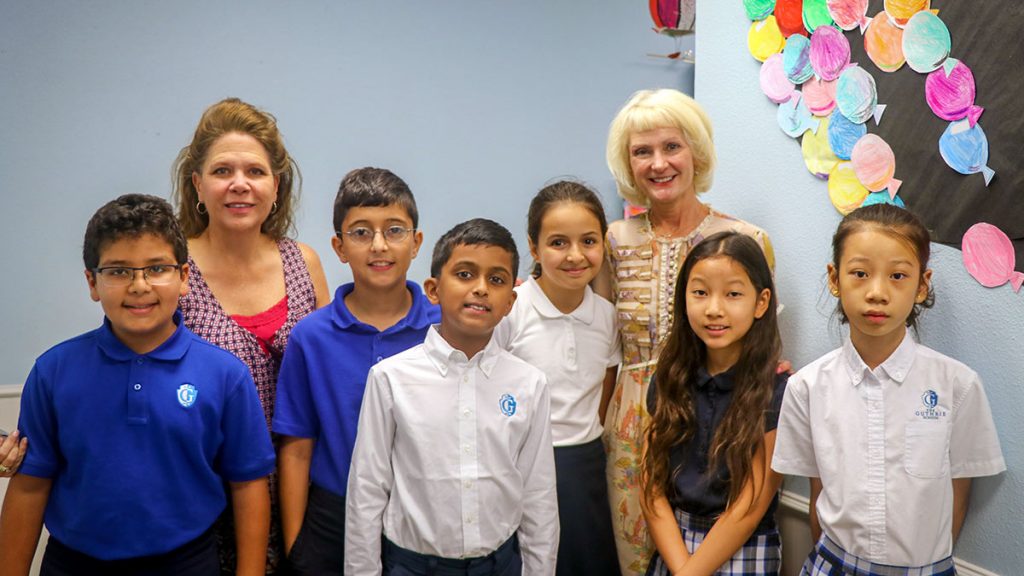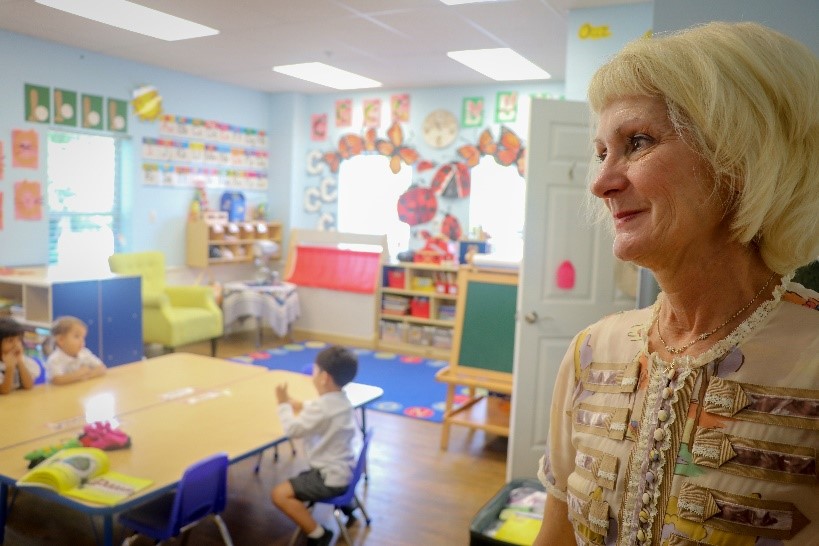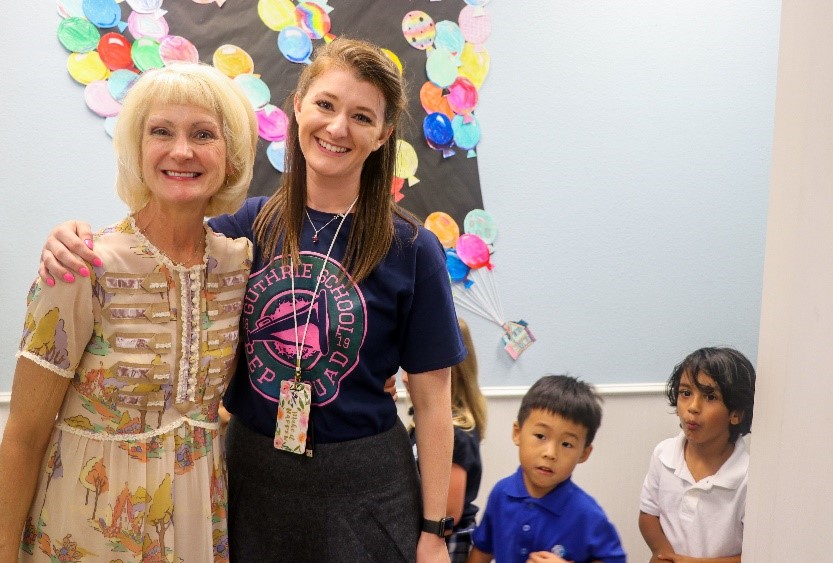UT Dallas Alumna Brings a New Approach to Elementary Education
By: Development Communications | September 17, 2018
Alumni News

A few miles north of The University of Texas at Dallas, there is another school that prides itself on taking an innovative approach to education. The Guthrie School, founded in 2013 by Jill Guthrie BA’85, offers students from preschool through sixth grade a unique learning environment, encouraging active engagement, personal expression, critical thinking and dialogue. “Our teachers encourage students to engage and speak their minds,” Guthrie said. “They learn a higher level of analysis as opposed to just recognizing if the answer is A, B, C or D.” The Guthrie School educates students with the Harkness method, which emphasizes dialogue between students and their teachers and peers. In order to facilitate discussion and maximize the personal attention each student receives, Guthrie keeps her class sizes small and equips classrooms with custom-built oval tables that allow teachers to conduct Socratic-style lessons in the round. “We get the best view of the child from hearing what they have to say,” she said. “Encouraging that rapport and engagement is what we are all about.”

Alongside an advanced curriculum, which boasts multiple language offerings and extracurricular activities — including a UT Dallas coding club — The Guthrie School offers ample opportunity for creative expression through the arts, promotes scientific investigation in a dedicated science lab and ensures students’ physical and mental well-being through a healthy lunch program and regular “brain breaks” — brief recesses that serve as a physical outlet for energy during the day, keeping students attentive during lessons. Guthrie attributes her educational philosophy to lessons learned from her grandmother and her experience performing research in UT Dallas’ psychology department. “My grandmother was born in 1889. She only had an eighth-grade education, but she was brilliant,” Guthrie said. “I learned so many things from her verbal lessons and stories, and that has inspired my view on the value of speaking to people. It is important to engage with human beings. That is how we learn tolerance, care and understanding. You learn how to be a good person.” Although Guthrie majored in English literature and mathematics at UT Dallas, she fondly remembers her time performing psychology research with Dr. Walter Dowling and Dr. James C. Bartlett, Ashbel Smith Professor and interim dean of the School of Behavioral and Brain Sciences. “I took a lot of classes in the psychology department,” Guthrie explained. “The method of research I learned there was fascinating and still influences our approach at The Guthrie School. I learned about how we learn, how the brain learns. I still am curious about this field today. We really try to use the best practices here for our students.” The Guthrie School currently enrolls about 100 students, including many who are the children of UT Dallas faculty, staff and alumni.

Guthrie’s own Comet connections run deep. She’s the mother of two graduates — Sam Guthrie BA’10 and Meredith Guthrie BS’14, who has worked at The Guthrie School since its founding and currently serves as a kindergarten teacher and director of enrichment. As a student, alumna and parent, Guthrie has watched UT Dallas develop from a small STEM-focused university to the Tier One research institution it is today. She is grateful for the University’s presence in her local community. “I am really proud of UTD and how it has continued to focus on educational excellence and attracting the best professors,” she said. “The University is critical in addressing the needs of the broader North Texas community. UT Dallas needs to be the big school in the area. Not necessarily big in numbers, but big in impact.” Guthrie sees synergy between the values espoused by UT Dallas and her school. “We train students on how to be involved and empower them to speak up for what they think is right,” she said. “We are trying to teach them to be active citizens. We want them to leave here and go make a positive impact and give back to their communities. “Teaching, to me, is home,” she said. “That is what I love.”